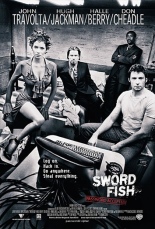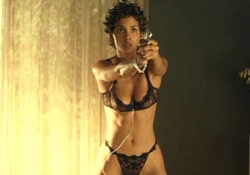
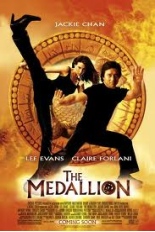 Hollywood has little clue what to do with Jackie Chan. Their ideas boil down to: a) pair him with a wacky black guy, and b) surround him with special effects. The first one works; the second one never will. There’s no point in hiring the world’s most renowned kung-fu acrobatic clown and dressing him up with lots of wires and CGI; if you’re going to do that, you might as well get, say, Tim Kazurinsky.
Hollywood has little clue what to do with Jackie Chan. Their ideas boil down to: a) pair him with a wacky black guy, and b) surround him with special effects. The first one works; the second one never will. There’s no point in hiring the world’s most renowned kung-fu acrobatic clown and dressing him up with lots of wires and CGI; if you’re going to do that, you might as well get, say, Tim Kazurinsky.
In the FX-laden crapfest The Medallion, Chan is a Hong Kong security specialist named Eddie, working with American Interpol agents to track down Julian Sands, obsessed with getting this medallion from a mystical Asian boy. It ends up in Chan’s nimble hands, but he gets killed in the process, but yet is revived by its supernatural powers. So now he can jump real high and fly like Superman. It’s lazy and uninspired, not to mention inane and embarrassing, like the montage of him dancing to “Twist and Shout.”
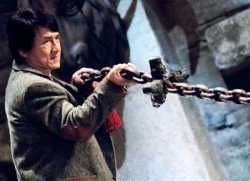 Normally, bad Chan scripts can be made bearable by the ad-libbing of a crazy partner. But Lee Evans is no Chris Tucker or Owen Wilson. As a most unlikely love interest is Claire Forlani, so bad you’ll be praying for the relative grace and panache of The Tuxedo’s Jennifer Love Hewitt. Not even the outtakes that play during the end credits are any good, although it is worth noting that it contains the third instance of Chan being interrupted by a cell phone (first spotted in the bloopers for Rush Hour 2 and Shanghai Knights).
Normally, bad Chan scripts can be made bearable by the ad-libbing of a crazy partner. But Lee Evans is no Chris Tucker or Owen Wilson. As a most unlikely love interest is Claire Forlani, so bad you’ll be praying for the relative grace and panache of The Tuxedo’s Jennifer Love Hewitt. Not even the outtakes that play during the end credits are any good, although it is worth noting that it contains the third instance of Chan being interrupted by a cell phone (first spotted in the bloopers for Rush Hour 2 and Shanghai Knights).
But that’s about all worth noting for this film, Chan’s absolute worst since breaking through on these shores in ’96. Even as a big Chan fan, I can safely say to avoid The Medallion at all costs. —Rod Lott



 But she mistakenly believes that he has been kidnapped, and refuses to pay. The plot gets more convoluted with twists and turns that eventually involve Sherman Helmsley and Danny DeVito as a morgue attendant with a hard-on for saving things removed from people’s rectums and
But she mistakenly believes that he has been kidnapped, and refuses to pay. The plot gets more convoluted with twists and turns that eventually involve Sherman Helmsley and Danny DeVito as a morgue attendant with a hard-on for saving things removed from people’s rectums and 
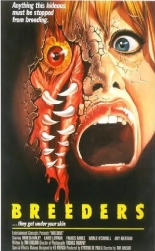
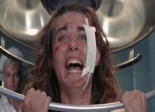 Although the movie’s nonexistent budget does factor into its failure, the majority of blame rests squarely on Kincaid’s shoulders. While his filmmaking technique renders every frame in a squalid, ugly urban reality, his scripting sets the plot in a strange fantasy world where photographers tell bikini models they should eat before they continue their photo shoots, and 20-something city women spend their time snorting coke and exercising naked, but are still innocent enough to “save themselves” for marriage. Watching Breeders, it quickly becomes clear why Kincaid eventually gave up mainstream filmmaking for the much less demanding world of gay porn. —Allan Mott
Although the movie’s nonexistent budget does factor into its failure, the majority of blame rests squarely on Kincaid’s shoulders. While his filmmaking technique renders every frame in a squalid, ugly urban reality, his scripting sets the plot in a strange fantasy world where photographers tell bikini models they should eat before they continue their photo shoots, and 20-something city women spend their time snorting coke and exercising naked, but are still innocent enough to “save themselves” for marriage. Watching Breeders, it quickly becomes clear why Kincaid eventually gave up mainstream filmmaking for the much less demanding world of gay porn. —Allan Mott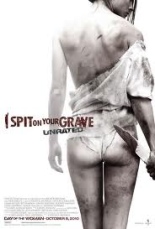
 The original 1978
The original 1978  And now here is where I’m supposed to tear apart
And now here is where I’m supposed to tear apart 